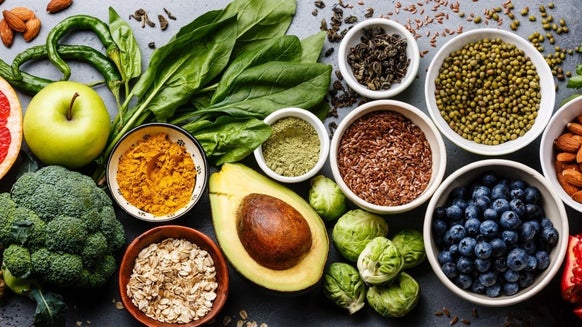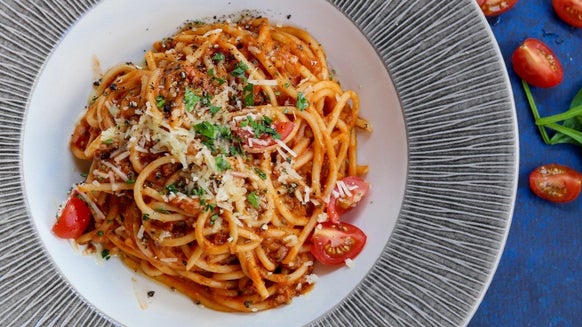Water Retention & Weight Loss Plateaus | The Importance of A Caloric Deficit

Ever weigh yourself to try and gauge your progress? Ever felt the frustration when the scale reads out the same number for weeks on end? You aren’t alone. Turns out there are powerful reasons why your weight may stay constant despite a cut in calories.
One reason the scale may not be reading a decrease in weight when dieting is that the body may retain water in the rapidly emptying fat cells. When fat is lost, the adipose cell can take on extra water in an attempt to maintain structural integrity.
Think of it this way - if you didn’t have enough bricks to build your house, you would try and build the house out of similarly block shaped objects.
The Idea Behind Water Retention
Cortisol is the hormone that is responsible for freeing up resources so that other cells that need energy can get it from fat cells. These can mimic the role of aldosterone when the body is under high levels of stress (say, from dieting). Aldosterone is the hormone responsible for regulation of water weight.
If water levels are too high, then aldosterone is produced in lower amounts so that you store less, ensuring that you don’t burst or have other bad things happen (this is why drinking lots of water can achieve a ‘dry’ look - you convince your body that water is freely available and that it doesn’t need to store high amounts). Conversely when water levels are low you retain more.
Therefore, when the body is stressed (and dieting is stressful!), then the body will produce higher levels cortisol (as with a deficit in dietary calories, your body needs to get more calories from fat cells) in addition to being more sensitive to the hormone (so each ‘unit’ of cortisol now has a larger effect than usual). This cortisol then binds to water weight receptors, and convinces the body to take on more water.

This factor is a massive influence over weight loss (or the lack thereof). This is why some people state that you can’t lose weight when you crash diet. It is sometimes claimed that you are going into ‘starvation mode’, and that your ‘metabolism has dropped/been damaged’ . The next recommendation in this situation is to eat more food in order to lose weight (calorie balance equation anyone?), which for some people actually leads to more consistent scale weight change. This, however, does not discount actual metabolic damage.
For otherwise healthy people, metabolism slow down is relatively minor - Dr. Lyle McDonald states that true metabolic slow down due to dieting is likely to be around 15%: the other parts of ‘metabolic slowdown’ can be attributed to a reduction in activity and a reduction in the calories needed to power a now-lighter body.
Am I experiencing a weight loss plateau?
A more fitting and accurate explanation for scale weight loss plateaus is that you will still burning fat, but your body is retaining more and more water (not a permanent thing - just drink more water/take a relaxing diet break and it’ll flow straight off).
The more stressful the cut in calories is, then the more likely you are to retain water in my experience, explaining why some people believe that fat loss happens faster when you eat more calories/have a smaller deficit (the weight is less likely to be replaced with water when the cut is smaller).
Some may stress over the fact that the scale might not have budged for a few days and this stress can cause the body to retain even more water weight (remember, stress is accumulative: it adds up from all the different sources in life!)
The importance of a calorie deficit
Knowing this is all well and good, but you cannot blame temporary water weight for your weight loss plateau if you are not in a calorie deficit in the first place.
If you aren’t eating at a caloric deficit, then you won’t be losing any weight.

This is simple thermodynamics, the Laws of the Universe. Energy can never be made or destroyed, so when the body isn’t getting as much energy as it is using, then the energy needs to come from breaking the chemical bonds in stored fat.
After the chemical bonds are broken, we breathe what remains of the fat out as water and carbon dioxide.
The math for calorie loss is a bit hazy, due to the fact that different parts of the equation can change depending on dieting status. For instance, the popular idea that a calorie deficit of 500kcals a day will lead to a pound of fat loss each week could be said to be slightly off the mark.
What I mean by this, is that when the body enters a dieting state (as in, it is losing mass), it may down regulate the calorie burning processes – and this doesn’t stop at metabolic slowdown.
Diets = Less Food
When you are dieting, you are probably eating less.
This means that there is less food matter accumulating in your intestines. Some research has shown that intestinal matter can weigh up to a kilogram and a half. This loss of weight will make it ‘energetically’ easier for you to move - thus lowering your ‘calories out’ part of the equation.
These are just some of the factors that change when you diet, and what they mean is that what was a calculated 500kcal daily deficit is in reality only a 450kcal deficit. This isn’t even to mention the fact that everyday that you wake up lighter, you burn fewer calories moving about - further lowering your total deficit!
What are the solutions?
It's important to ensure that you are at a caloric deficit.
Don’t freak out if you are cutting calories but aren’t losing scale weight. You could try cutting by a further 10% in calories to make sure that you are actually in a deficit, or the simple solution would be to change to another form of measuring your progress!
You could try measuring your skin folds using a bodyfat calliper. You don’t necessarily need to know any bodyfat calculations - just measure a certain point by pinching the skin and taking 2-3 measurements (use 2 inches above your

See if the measurement goes down in a few weeks. If it does, then obviously you have lost body fat! Another measurement you could take is by comparing photos every 2-3weeks (ensure you take the photo in identical lighting as different lights can show/hide muscle definition) and seeing if your hips get smaller/abs become more defined etc.
If you insist on using weighing scales to monitor fat loss progress but are still freaking out over water weight, know that when you go back into eating maintenance calories (not dieting) that the water weight will drop off (it’s only temporary) and that so long as you are in a calorie deficit - you will be losing fat. With a reduction in diet-induced stress a reduction of cortisol will result.
This reduction in cortisol (that mimics aldosterone, the water weight hormone) will reduce the amount of water weight you store. You will probably get a small scale increase when you eat more food, due to the fact that there will be more glycogen in your muscle (1 gram of carbohydrate can hold around 4 grams of water), and there will be more faecal matter forming in your intestines but there will be far more weight loss due to less water being stored in fat tissues.
Take Home Message
The key message here is to persevere even if the scale doesn’t change.
As long as you are in a caloric deficit, then you'll be sure to lose fat!







